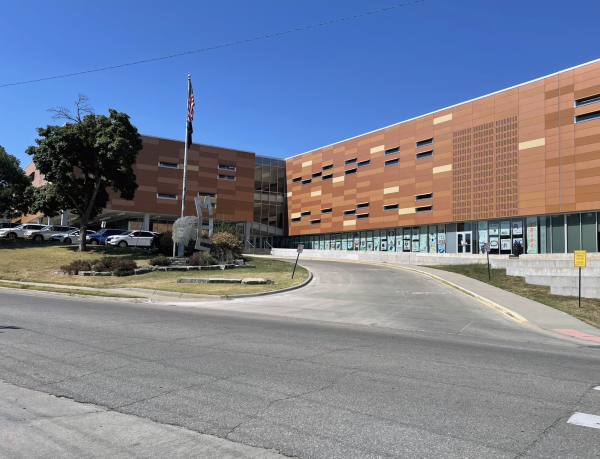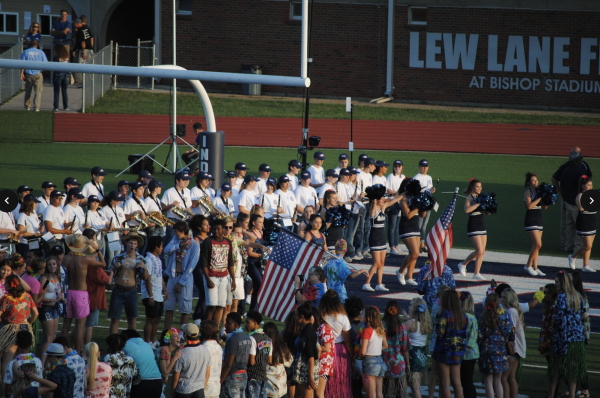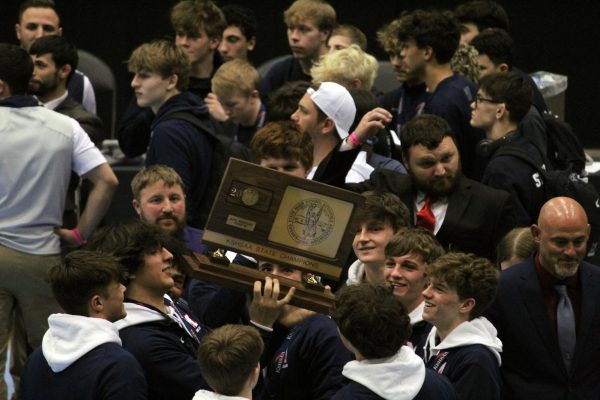Local elections undervalued
Local elections are kind of boring on the surface. Bills passed in the school board and city commission to fund math textbooks and the local library seem mundane compared to the buzz of Congress or Executive orders we get push notifications about. The lack of potential nuclear war, revolutionary welfare spending or the creation of a Space Force keeps us from constantly checking in on local policy. But the reality is that local politics and elections shape your life much more than national ones.
Despite this, most people know almost nothing about who represents them in local government and what they stand for. According to a study published by George Washington University in 2016, less than 40% of Americans can name their mayor, and less than 20% can name their school superintendent.
Think about it. Do you know who the mayor of Manhattan is? What about our state legislator or senator? If you do that’s probably because you’re reading a column in a student newspaper about the importance of local elections, but a shocking amount of people — especially young people — can’t answer those questions.
Local government decides what sales tax you pay, what you learn in school (to an extent) but certainly where you attend public school, parks and recreation services, our police and fire departments, housing services, emergency medical services, public transport and city development. These services play a much larger part in most people’s lives than the debt ceiling being raised or a president being impeached.
Issues people fight for in Washington can also be addressed locally, often more successfully so. Your voice matters more in local politics because there are fewer voters for local officials to cater to. Try calling Joe Biden to see whether he picks up the phone and you won’t have much luck. The mayor of a medium-sized town, however, is a different story. Individual citizens can shape their community. Therefore, while we complain about how we wish Biden would pass a police reform bill, we could address these issues in our own communities. Want sales taxes to go down? Local government. Want low-income housing? Local government. Concerned about mask mandates? Local government decides all of these issues.
Part of the reason Manhattan City Commission and our local representatives in Topeka are so important is that America is a Federalist country. Our government is designed to delegate most rights — those not explicitly stated in the Constitution as federal rights — to states and municipalities rather than the Federal government. So when we assume that presidential elections are the most important and as elections get smaller they become less important, we turn the principles of Federalism on its head. We are supposed to care first about our own communities, then about oversight from the state and federal government, in order for our society to work most efficiently.
As we turn our backs on local governments, we allow them to operate as they please. If you don’t pay close attention to local government, you might not notice when a county commissioner said that Riley County wasn’t at risk for COVID-19 because we don’t have a lot of Chinese people, and defended those remarks as not racist by saying he eats Chinese food (which Marvin Rodreguiz said), or when the city commission voted to go into greater debt to build a miniature Eiffel Tower in Aggieville (which they didn’t do, but you believed it for a second didn’t you). Point made.
Local government is the foundation of our society, and the impact of our more humble political appointments deserve your focused attention. They deserve your campaign donations, your vote when you’re old enough and your phone calls with complaints and suggestions. Small government deserves your time and energy, because change can come from the ground up.







